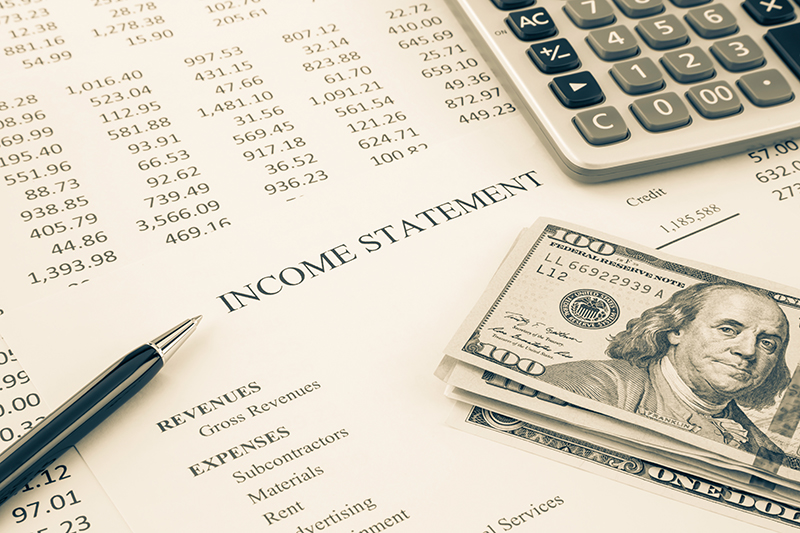What Is a Bankruptcy Means Test?
The bankruptcy means test was implemented as part of the Bankruptcy Abuse Prevention and Consumer Protection Act of 2005. Its purpose is to prevent individuals with higher incomes from filing for Chapter 7 bankruptcy and instead requires them to file for Chapter 13 bankruptcy, which involves a repayment plan.
Even if you don’t pass the means test, there are still options available to you. You may be able to explore other forms of bankruptcy or work with an attorney to review your financial situation and explore alternative solutions.
Ultimately, the bankruptcy means test is designed to ensure that those who genuinely cannot afford to repay their debts can seek relief through Chapter 7 bankruptcy, while those with the ability to repay are directed towards Chapter 13 bankruptcy. [1]
How Does a Bankruptcy Means Test Work?
The means test takes into account your income, expenses, and household size to determine whether your financial situation meets the criteria for Chapter 7 bankruptcy.
Once you’ve gathered all the necessary documentation, you can then calculate your monthly income and expenses to determine whether you have enough disposable income to repay your debts. If your income is below the median income in your state for your family size, you’ll likely qualify for Chapter 7 bankruptcy. If your income is above the median, you’ll have to go through a more detailed means test to determine your eligibility.
The more detailed means test takes into account specific expenses and deductions to determine whether you have enough disposable income to repay your debts. If you still have enough disposable income after accounting for your expenses, you may not qualify for Chapter 7 bankruptcy and will have to file for Chapter 13 instead.

What Happens if You Pass The Means Test?
If you pass the means test, it means that you meet the income requirements for Chapter 7 bankruptcy. This means that your income is below the state median income for a household of your size, or that your disposable income, after deducting certain expenses, is not enough to repay your debts. If you pass the means test, you can move forward with filing for Chapter 7 bankruptcy and enjoy the benefits of having your unsecured debts discharged.
Passing the means test does not guarantee that your bankruptcy case will be approved. You still need to meet other requirements and provide all the necessary documentation to support your bankruptcy filing.
Passing the means test does not automatically mean that your bankruptcy case will be successful. The court will still review your case to ensure that you meet all the requirements for Chapter 7 bankruptcy and that you have not engaged in any fraudulent behavior.
What Happens if You Fail the Means Test?
This answer depends on the specifics of your financial situation. In some cases, failing the means test may mean that you are not eligible for Chapter 7 bankruptcy. Instead, you may have to file for Chapter 13 bankruptcy, which requires you to repay a portion of your debts over a three to five-year period.
If you fail the means test and are not eligible for Chapter 7 bankruptcy, you may also have to consider other options for managing your debt. This could include working with a credit counselor or debt consolidation company to develop a repayment plan or even negotiating directly with your creditors to settle your debts.
Failing the means test does not necessarily mean that you are completely out of options for managing your debt. While it may limit your ability to file for Chapter 7 bankruptcy, there are still other avenues to explore for finding relief from overwhelming debt. Consulting with a bankruptcy attorney, credit counselor, debt consolidation company or financial advisor can help you develop a plan that makes the most sense for your particular situation.

What Information Is Needed for a Bankruptcy Means Test?
Individuals will need to gather information about their household income. This includes all sources of income, such as wages, salaries, self-employment income, rental income, and any other forms of income that contribute to the household’s financial resources. It is important to accurately report all sources of income to ensure the means test is completed correctly.
Individuals will also need to gather information about their monthly living expenses. This includes expenses such as rent or mortgage payments, utilities, food costs, transportation expenses, and any other regular monthly expenses. Have documentation to support these expenses, such as utility bills, receipts, and bank statements. [2]
Individuals will need to gather information about their debts and financial obligations. This includes information about all debts owed, such as credit card debt, medical bills, and loans. Individuals will also need to provide documentation of any secured debts, such as mortgages or car loans.
Are There Any Exceptions to the Means Test?
One common exception is for disabled veterans. If a person incurred their debt primarily while on active duty or performing a homeland defense activity, and they are either a disabled veteran or a military reservist, they may be exempt from the means test. This exception recognizes the sacrifices and challenges faced by disabled veterans and provides them with the opportunity for a fresh start financially.
Another exception to the means test is for individuals with primarily non-consumer debts. If a person’s debts are primarily business-related rather than consumer debts, they may not be subject to the means test. This exception recognizes that the means test is intended to assess a person’s ability to repay consumer debts, and does not necessarily apply to those with primarily business debts.
Exceptions to the means test are not automatically granted, and individuals must meet certain criteria and provide evidence to support their eligibility for an exception. Consulting with a knowledgeable bankruptcy attorney can help individuals understand whether they may qualify for an exception to the means test and navigate the bankruptcy process effectively.

Contact Frego Law bankruptcy lawyers today and let our experienced attorneys assist you in understanding and completing the bankruptcy means test.
Sources:
[1] Pyles, S. (2023, May 19). The Bankruptcy Means Test: What It Is, Why It Matters. NerdWallet. https://www.nerdwallet.com/article/finance/bankruptcy-means-test
[2] Akin, J. (2023, April 21). What Is a Bankruptcy Means Test? Experian. https://experian.com/blogs/ask-experian/what-is-bankruptcy-means-test/




